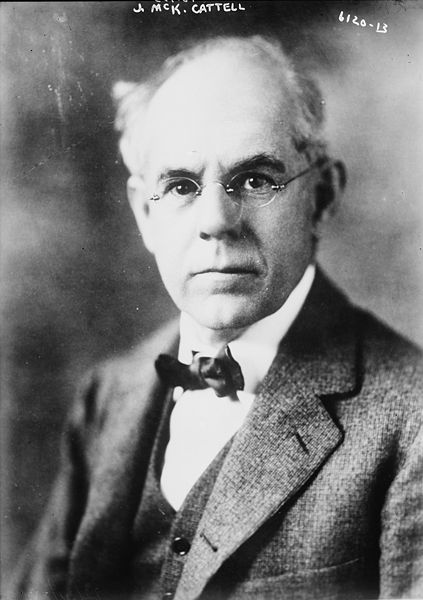Wilhelm Maximilian Wundt was a German physiologist, philosopher, and professor, one of the fathers of modern psychology. Wundt, who distinguished psychology as a science from philosophy and biology, was the first person ever to call himself a psychologist.
Wundt in 1902
Wilhelm Wundt (seated) with colleagues in his psychological laboratory, the first of its kind
Wundt's gravestone
(Wundt, Grundzüge, 1903, 5th ed. Vol. 1, p. 324.)
Psychology is the study of mind and behavior. Its subject matter includes the behavior of humans and nonhumans, both conscious and unconscious phenomena, and mental processes such as thoughts, feelings, and motives. Psychology is an academic discipline of immense scope, crossing the boundaries between the natural and social sciences. Biological psychologists seek an understanding of the emergent properties of brains, linking the discipline to neuroscience. As social scientists, psychologists aim to understand the behavior of individuals and groups.
James McKeen Cattell, the first psychologist in the United States
Wilhelm Wundt (seated), a German psychologist, with colleagues in his psychological laboratory, the first of its kind, c. 1880
One of the dogs used in Russian psychologist Ivan Pavlov's experiment with a surgically implanted cannula to measure saliva, preserved in the Pavlov Museum in Ryazan, Russia
False-color representations of cerebral fiber pathways affected, per Van Horn et al.[V]







![False-color representations of cerebral fiber pathways affected, per Van Horn et al.[V]](https://upload.wikimedia.org/wikipedia/commons/thumb/1/1b/Simulated_Connectivity_Damage_of_Phineas_Gage_4_vanHorn_PathwaysDamaged.jpg/640px-Simulated_Connectivity_Damage_of_Phineas_Gage_4_vanHorn_PathwaysDamaged.jpg)